Wednesday, July 31, 2019
Tuesday, July 30, 2019
5 student loan myths debunked
Whether you’re taking out student loans for the first time or have taken them out before, odds are that you’ve heard a lot of fact and fiction about the process. Here are five common misconceptions around graduate student loans.
Myth No. 1: Interest starts accruing immediately once you’ve booked a loan.
Interest on your student loan won’t start accruing until after your school disburses the funds. Each school determines its own loan disbursement dates, which are often before the first semester begins. Therefore, it is a good idea to ask your financial aid office for the disbursement date, as this is when interest will actually start to accrue. What this means is that you won’t save interest expenses if you wait until the last minute to book your loan. In fact, if you knock out a loan application today, you could save yourself some stress and start enjoying the rest of summer.
Myth No. 2: Federal loans have the lowest rates, so you should always “max out” your federal loans.
The answer may be different depending on whether you’re borrowing for college or graduate school. Direct federal loans for undergraduates are subsidized with lower rates so it’s good to max out that option before turning to private loans for college.
However, when it comes to graduate school, especially if you’re attending a specialized program such as dental school, you can often find a cheaper alternative with a private loan. The Federal Direct Unsubsidized loan for graduate students carries a 6.08% interest rate with a 1.06% fee (the maximum amount you can borrow is $20,500). The Federal Graduate PLUS loan carries a 7.08% interest rate with a 4.24% fee. For each of these options, the government offers the same rate to all graduate students regardless of their course of study.
CommonBond offers specialized loans for students attending dental school. These loans are designed to save students money vs. federal options with rates ranging from 5.30–6.94% APR for a variable rate loans1 and 5.33–6.98% APR for fixed rate loans, with a 2% fee.2 Over the life of your loan, a CommonBond loan could help you save thousands. Check your rate see how much you could save.
Myth No. 3: The government will forgive your loan.
If you are planning to work in public service or a non-profit, you may have heard of Public Service Loan Forgiveness. This is a federal program for individuals working full-time for a qualifying employer that forgives the remaining balance on your Federal Direct Loans after you have made 120 qualifying monthly payments under a qualifying income-based repayment plan. If you’re thinking about this route, don’t just assume your application will be approved without doing due diligence. Check (and keep checking) your eligibility, as only a slim percentage of individuals who apply are approved. In fact, as of March 31, 2019, 99% of all Public Service Loan Forgiveness applications submitted were rejected.
Myth No. 4: Only federal loans offer protections
CommonBond loans come with protections such as forbearance, which means you can “press pause” on payments for up to 12 months over the life of your loan if you unexpectedly encounter economic hardship or issues. Additionally, in the event of death or total and permanent disability, your CommonBond loan would be canceled.
Myth No. 5: Once you’ve booked a loan, there’s no way to “un-book” it.
If you already booked a Federal PLUS Loan, but now realize you can find a cheaper loan from a private lender like CommonBond, you can cancel all or a portion of your loan disbursement within 120 days of the date your school disbursed the funds. If you cancel your loan, you will have to return the money, but you will not be charged any interest or fees on the canceled loan.
Learn more about CommonBond’s new loan offering.
~CommonBond
(1) Variable rates may increase after consummation.
(2) Subject to state law restriction.
This blog post was sponsored by CommonBond.
Monday, July 29, 2019
Evaluating associateships: Questions to find your best fit
Job hunting is an arduous process. From struggling to find opportunities and evaluating your options to interviewing and negotiating your pay, finding your dream associateship is stressful. In his interview on the “Shared Practices” podcast, Dr. Chris Salierno, chief editor of Dental Economics, talked about the stresses of the new grad career path, explaining that when you’re meeting doctors throughout the process, “you are interviewing them just as much as they are interviewing you.”
There are numerous factors about the doctor and practice for you to analyze during that interview, with no definitive guide to determine the ideal associateship. Asking the right questions helps you decide if an opportunity is right for you.
Planning for the future
When evaluating associateships, being intentional is everything. While you’re bound to learn and grow practicing under any dentist, actively seeking out the associateship that best helps you achieve your long-term goals decreases your likelihood of wasting your time and energy. This is even more critical if you plan to turn the associateship into ownership.
If you don’t have set long-term goals, start by getting a general idea of what your ideal future looks like from a clinical and a lifestyle perspective. Dr. Salierno advises that during the first six months of the associateship (roughly one recall cycle), you should continue to reevaluate if the opportunity is right for you. This constant evaluation keeps you intentional about your future
Read the rest of this article in the June/July issue of Contour magazine.
~Kevin Reardon, Creighton ’20, Chapter Professional Development Chair
Did you know that you could sign up to receive an email whenever the digital issue of Contour is available? Log in to your profile, select “My ASDA” and update your publications preferences.
Friday, July 26, 2019
Thursday, July 25, 2019
Wednesday, July 24, 2019
Tuesday, July 23, 2019
Monday, July 22, 2019
How having a mentor gave me my ‘best year yet’
“Lead. Live. Laugh. Love. Learn … Leave a legacy.”
These are the words hand-printed and signed by Dr. David Maloley on the inside cover of his 2018 book, “Titans of Dentistry: How the Top Performers Think and Act Differently,” co-authored by Dr. Justin Short. The book includes interviews with 39 “titans” in dentistry, providing the reader with insight into how they think and behave differently from the average practitioner.
I met Dr. Maloley after he spoke at the Professional Development and Leadership Conference hosted by Colorado ASDA in spring 2018. I drove him to an event after the conference, and as a fan of his podcast, The Relentless Dentist, speaking with him in person was amazing.
Days after the ASDA event, I was still thinking about Dr. Maloley’s presentation. One thing he said stuck with me: “A fulfilling life does not happen by chance.” He explained: “We can engineer our best year every year.”
I am a second-career dental student, watching my 30s pass as I balance the demands of family, finances and, of course, dental school. I experienced unfulfilling success in my 20s, working as an accountant for Fortune 500 companies such as Deloitte and Kinder Morgan. In the spirit of pursuing a more fulfilling life, I was determined to extract more content and advice from Dr. Maloley, so I expressed interest in his coaching program. He described a framework to engineering your best year every year, and I was desperate to dive in to his program and learn more about maintaining a successful career. He was welcoming to my inquiry, even thanking me for pursuing. He offered a formal phone interview to discuss the program and to find out if I was a good fit. Thankfully, we came to an agreement. I suddenly had my own high-performance coach!
From the beginning, Dr. Maloley explained that he would be tough on me. I had to be committed, dedicated and vulnerable. We would need to go to the deepest pits of my life to unlock my full potential. He sent me “Titans” in fall 2018, shortly after I began learning his high-performance principles: clarity, energy, courage, productivity, influence and self-psychology. To my surprise, there was a common theme among most of the titans featured in the book: They all overcame significant obstacles in their journey. These obstacles made them better, provided greater purpose and clarity in their lives, and proved to be instrumental to the success of their careers.
I have spent 12 months under Dr. Maloley’s mentorship, and I’m happy to report the past year has been my best year yet. Professionally, I’ve made strides in achieving my goals. Ten months away from graduation, I’ve been offered an associateship/partnership at a successful practice. Our philosophies and career goals are so closely aligned, it sometimes feels too good to be true. The team has allowed me to contribute to their planning meetings, and we’re working toward a seamless onboarding. Most importantly, I’ve become a more compassionate husband, exceptional father and effective leader. Having a mentor like Dr. Maloley has unlocked my potential and allowed me to live a life that is true to me. Through continuous growth and service to others, I feel more fulfilled, present and excited for the challenges that life will present me.
~Nate Rivera, Colorado ’20
Friday, July 19, 2019
Thursday, July 18, 2019
Wednesday, July 17, 2019
Tuesday, July 16, 2019
Monday, July 15, 2019
Our responsibility in continuing the integrity of our profession
The May issue of The Atlantic included an article about dentistry. The author Ferris Jabr discussed “the truth” about the profession, that “it’s much less scientific — and more prone to gratuitous procedures — than you may think,” as the headline of the online version of the article stated. He provided examples where dentists over-treated patients, honing in on one extreme case, and the article exuded a message that there is no standard of care with which we practice as a profession. While various elements of this article caused an uproar in the dental community, it shows one picture of how the public may view dentistry. As dental professionals, this is an issue we should diligently address.
The article touched on multiple points around science in dentistry, practitioner accountability, ethics and values. The author also discussed a lack of evidence-based dentistry practice.
As a dental student, I have been instructed in methodology backed by research. My dental curriculum requires that we take a class called “Evidence-Based Dentistry” in order to matriculate with our DDS degree. I see clear ways our profession strives to use evidence-based practices. It is true, though, that more research can always be done, specifically in the case of dentistry.
The combination of rapid advancements in scientific knowledge, the slow growth of the body of dental researchers, and the uneven distribution of research funds and involvement in research by dental schools are hurdles to overcome in the practice of evidence-based dentistry. Despite these challenges, however, members of the dental profession are working daily to keep up with new technologies and improve the body of dental knowledge.
In this constant pursuit of knowledge, we also must hold ourselves accountable for our mistakes. The ASDA Code of Ethics states that “ethical and professional behavior by dental students is characterized by honesty, fairness and integrity in all professional circumstances.” This includes owning up to any professional errors. It also states that “students should conduct a thorough discussion with every patient” and “treatment plans should be determined according to patient needs as opposed to unmet requirements of the student.”
In order to develop strong relationships with our patients, we should provide all of their options for dental treatment. Jabr points out that many patients simply expect to accept the dentist’s opinion of the treatment plan without question. This directly conflicts with the ASDA Code as well as the ADA Code of Ethics, which states, “The dentist should inform the patient of the proposed treatment, and any reasonable alternatives, in a manner that allows the patient to become involved in treatment decisions.” As practitioners, we should ensure that we routinely present all available options for treatment to our patients and encourage their input.
Presenting the pros and cons of different treatment options can be a difficult skill to learn as a new student in dental school. A patient may be able to fix their tooth in the short-term with a composite filling. However, a crown might provide a better result in terms of esthetics and longevity. Helping a patient determine the treatment they prefer involves a complex discussion of the patient’s values, oral health goals and their finances. Despite the time constraints imposed on practicing dentists, it is integral to take the time to have this discussion.
There is a lot of wisdom to be gained from the lessons of the past. Our profession should turn to the future and use past problems like those that Jabr describes as learning experiences to ensure mistakes are not repeated. While insurance audits and state dental boards can keep dentists in check from malpractice, cooperation from the entire dental community is required if we are to be a self-regulated profession. Be accountable for over-treatment, and take the time to accurately educate your patients on their treatment options.
~Isabel Pennings, Creighton ’20, ASDA Contributing Editor
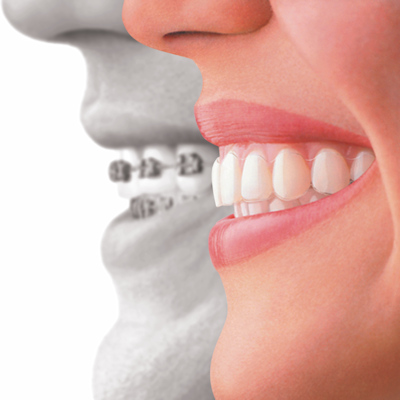 Are general or pediatric dentists better at identifying when a patient needs orthodontic treatment? Which group is more likely to refer a patient to an orthodontist? In a new study, researchers showed pretreatment orthodontic patient records to both general and pediatric dentists to find out.
Are general or pediatric dentists better at identifying when a patient needs orthodontic treatment? Which group is more likely to refer a patient to an orthodontist? In a new study, researchers showed pretreatment orthodontic patient records to both general and pediatric dentists to find out.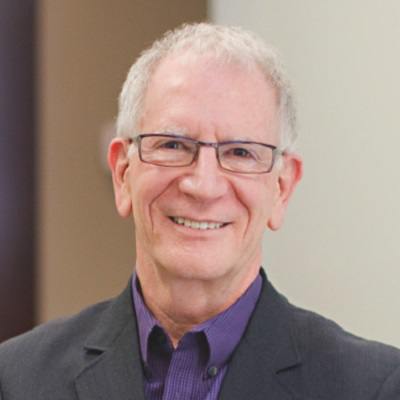 In the conclusion of his series on biological dentistry, periodontist Dr. Alvin Danenberg lists 10 questions he urges other practitioners and patients to ask a provider using the label biological dentist. Dr. Danenberg also offers his suggested answers to these questions and how they impact patient care.
In the conclusion of his series on biological dentistry, periodontist Dr. Alvin Danenberg lists 10 questions he urges other practitioners and patients to ask a provider using the label biological dentist. Dr. Danenberg also offers his suggested answers to these questions and how they impact patient care.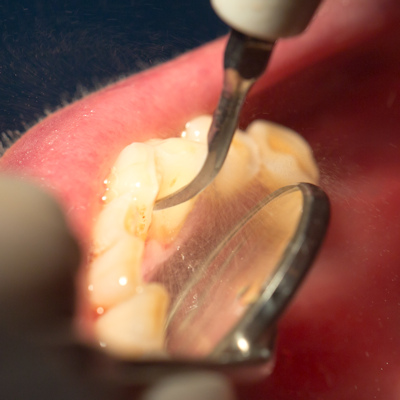 The science is in: Long-term periodontal therapy appears to prevent tooth loss and tissue damage. A new study found that decades-long periodontal treatment at a general dentist's office helped patients maintain healthy gums.
The science is in: Long-term periodontal therapy appears to prevent tooth loss and tissue damage. A new study found that decades-long periodontal treatment at a general dentist's office helped patients maintain healthy gums.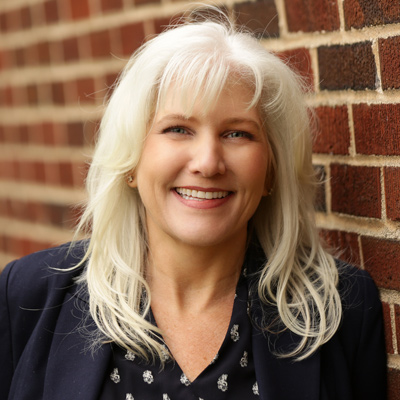 The entire day of a dental practice revolves around the appointment schedule. Yet many practices experience chaotic days far too frequently. Dayna Johnson, founder of Rae Dental Management, offers some practical and productive scheduling tips for practices that use Dentrix.
The entire day of a dental practice revolves around the appointment schedule. Yet many practices experience chaotic days far too frequently. Dayna Johnson, founder of Rae Dental Management, offers some practical and productive scheduling tips for practices that use Dentrix.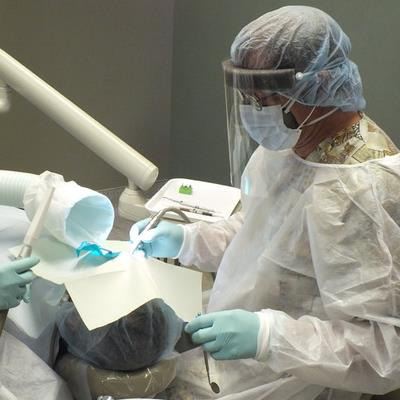 Mercury exposure during amalgam removal procedures may be seven times higher than the limits recommended by some occupational safety organizations, a new study has found. The research findings suggest minuscule amalgam particles may be able to generate staggering amounts of mercury vapor.
Mercury exposure during amalgam removal procedures may be seven times higher than the limits recommended by some occupational safety organizations, a new study has found. The research findings suggest minuscule amalgam particles may be able to generate staggering amounts of mercury vapor. A patient shows up at your dental office with a service dog -- what should you do? Dr. Robert Wilson Jr. explored the ethical and legal implications for patients with service animals in a feature published in the August issue of the Journal of the American Dental Association.
A patient shows up at your dental office with a service dog -- what should you do? Dr. Robert Wilson Jr. explored the ethical and legal implications for patients with service animals in a feature published in the August issue of the Journal of the American Dental Association.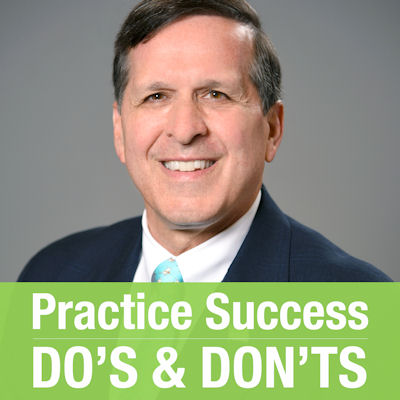 It takes time for even the most experienced dentists to master case presentation skills. Case presentation has to be learned, practiced, and mastered if doctors are committed to taking the next step toward greater profitability. A little short-term frustration will be offset by long-term gains to the practice, Dr. Roger P. Levin notes in his latest Practice Success tip.
It takes time for even the most experienced dentists to master case presentation skills. Case presentation has to be learned, practiced, and mastered if doctors are committed to taking the next step toward greater profitability. A little short-term frustration will be offset by long-term gains to the practice, Dr. Roger P. Levin notes in his latest Practice Success tip.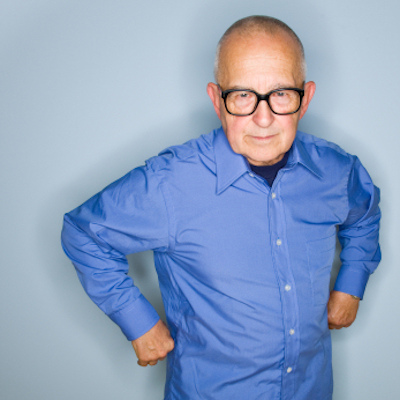 The number of dental visits decline as people age and dramatically drop after age 80, according to a new study. The researchers worry that the lack of preventive dental care could lead to tooth decay and loss for these patients.
The number of dental visits decline as people age and dramatically drop after age 80, according to a new study. The researchers worry that the lack of preventive dental care could lead to tooth decay and loss for these patients. The number of drug overdose deaths in the U.S. dropped for the first time since 1990, according to preliminary data from the U.S. Centers for Disease Control and Prevention (CDC). The data suggest that steps to curb the opioid epidemic may be working.
The number of drug overdose deaths in the U.S. dropped for the first time since 1990, according to preliminary data from the U.S. Centers for Disease Control and Prevention (CDC). The data suggest that steps to curb the opioid epidemic may be working.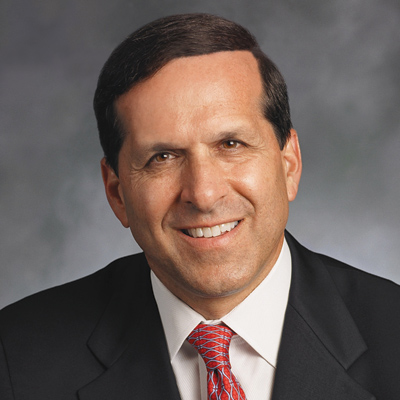 You've heard many times that it's the little things in life that matter. Dr. Roger P. Levin writes that it is often these little things that make a difference to patients and will help keep your practice thriving. He offers five practical ideas to make patients feel appreciated and be loyal.
You've heard many times that it's the little things in life that matter. Dr. Roger P. Levin writes that it is often these little things that make a difference to patients and will help keep your practice thriving. He offers five practical ideas to make patients feel appreciated and be loyal. Talking with patients about opioids and pain management is important, but it can be a difficult topic for many providers. Experts discussed how to use motivational interviewing to help make this conversation a little easier during a webinar on July 17.
Talking with patients about opioids and pain management is important, but it can be a difficult topic for many providers. Experts discussed how to use motivational interviewing to help make this conversation a little easier during a webinar on July 17. How good are you at telling if a patient has dental anxiety? Maybe not as good as you think, as a new study found that dental practitioners rated poorly in their ability to determine a patient's dental anxiety.
How good are you at telling if a patient has dental anxiety? Maybe not as good as you think, as a new study found that dental practitioners rated poorly in their ability to determine a patient's dental anxiety.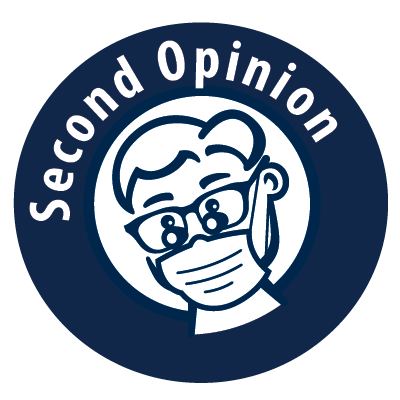 In this Second Opinion, Dr. Paul Casamassimo, policy chief for the American Academy of Pediatric Dentistry, explains the reasoning behind the academy's recent survey on the predicted growth of pediatric dentists in the U.S.
In this Second Opinion, Dr. Paul Casamassimo, policy chief for the American Academy of Pediatric Dentistry, explains the reasoning behind the academy's recent survey on the predicted growth of pediatric dentists in the U.S. Maintaining enamel hardness is a concern when patients undergo radiation therapy. Researchers wanted to see if natural compounds such as coconut oil, vitamin E oil, and curcumin helped during after-cancer treatment.
Maintaining enamel hardness is a concern when patients undergo radiation therapy. Researchers wanted to see if natural compounds such as coconut oil, vitamin E oil, and curcumin helped during after-cancer treatment. >The use of low-level laser therapy shows promise for accelerating orthodontic tooth movement and reducing associated pain. Researchers conducted a study to investigate the effects of one such type of low-level laser, a diode laser, on these factors.
>The use of low-level laser therapy shows promise for accelerating orthodontic tooth movement and reducing associated pain. Researchers conducted a study to investigate the effects of one such type of low-level laser, a diode laser, on these factors.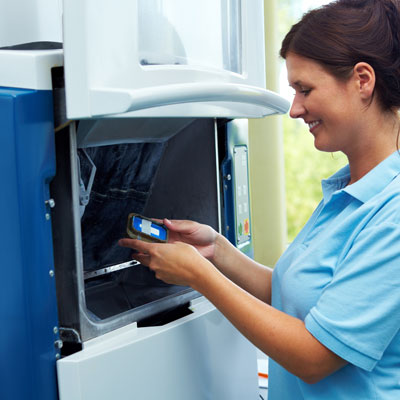 Researchers wanted to see which CAD/CAM composites for molars were hardest and held up best after toothbrush abrasion testing. After putting six composites through rigorous testing, they discovered that feldspathic ceramic scored the highest in hardness, but some of the composites might need periodic repolishing.
Researchers wanted to see which CAD/CAM composites for molars were hardest and held up best after toothbrush abrasion testing. After putting six composites through rigorous testing, they discovered that feldspathic ceramic scored the highest in hardness, but some of the composites might need periodic repolishing. Poor oral health is a global phenomenon and one that's not improving with better research and technology. To fix this, an international team of researchers is calling for radical oral healthcare reform, including universal oral healthcare coverage.
Poor oral health is a global phenomenon and one that's not improving with better research and technology. To fix this, an international team of researchers is calling for radical oral healthcare reform, including universal oral healthcare coverage. An estimated 18 million American adults have sleep apnea. The go-to treatment -- a CPAP machine -- offers a healthy, restful night’s sleep, but people often struggle to use it and as many as 50% stop using the device. However, the health effects of untreated sleep apnea can be serious. Following up with patients is key.
An estimated 18 million American adults have sleep apnea. The go-to treatment -- a CPAP machine -- offers a healthy, restful night’s sleep, but people often struggle to use it and as many as 50% stop using the device. However, the health effects of untreated sleep apnea can be serious. Following up with patients is key.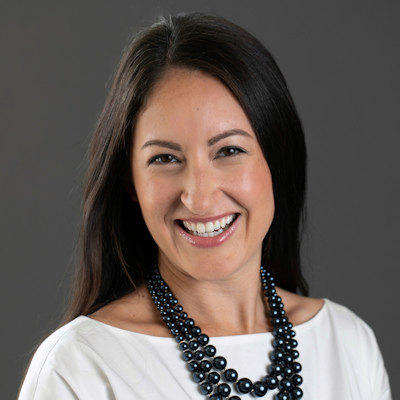 If you'd asked Dr. Mikaeya Kalantari about search engine optimization (SEO) when she graduated from dental school, she admits she wouldn't have known how to answer. Now, as a pediatric dentist and successful blogger, she has come to understand how important SEO is for a practice. She shares four tips to help yours.
If you'd asked Dr. Mikaeya Kalantari about search engine optimization (SEO) when she graduated from dental school, she admits she wouldn't have known how to answer. Now, as a pediatric dentist and successful blogger, she has come to understand how important SEO is for a practice. She shares four tips to help yours.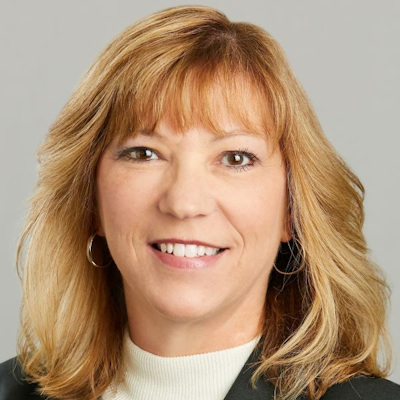 Your practice has a lot riding on your next hire, but how do you know if a candidate is really right for the job? Annette Igl of U.S. Oral Surgery Management has more than 25 years of human resources experience. She knows that to hire the right person you need the right strategy.
Your practice has a lot riding on your next hire, but how do you know if a candidate is really right for the job? Annette Igl of U.S. Oral Surgery Management has more than 25 years of human resources experience. She knows that to hire the right person you need the right strategy.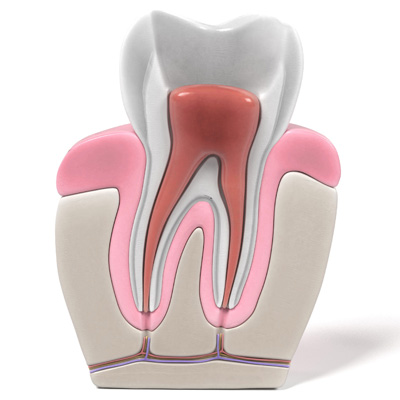 When looking for root fractures, conventional scanning methods may miss crucial clinical information. Researchers wanted to see if a fluorescence camera could measure the depth of these fractures and any bacterial presence in extracted mandibular second molars.
When looking for root fractures, conventional scanning methods may miss crucial clinical information. Researchers wanted to see if a fluorescence camera could measure the depth of these fractures and any bacterial presence in extracted mandibular second molars. The number of U.S. pediatric dentists is expected to grow by more than 60% through 2030, according to new research commissioned by the American Academy of Pediatric Dentistry. Without major policy shifts, this drastic increase in supply could overtake demand for services.
The number of U.S. pediatric dentists is expected to grow by more than 60% through 2030, according to new research commissioned by the American Academy of Pediatric Dentistry. Without major policy shifts, this drastic increase in supply could overtake demand for services.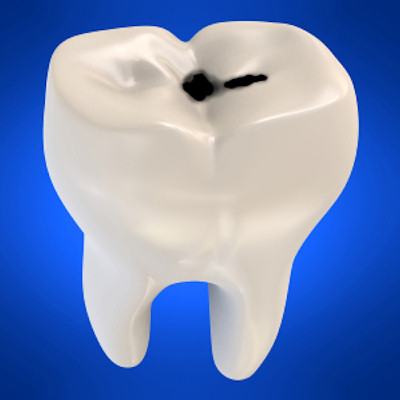 Atraumatic restorative treatment (ART) is known as an inexpensive way to treat early childhood caries, but silver diamine fluoride (SDF) also has been investigated as a low-cost method. Researchers conducted a study to find out which method is more effective when treatment access is limited.
Atraumatic restorative treatment (ART) is known as an inexpensive way to treat early childhood caries, but silver diamine fluoride (SDF) also has been investigated as a low-cost method. Researchers conducted a study to find out which method is more effective when treatment access is limited. What's the worst dental procedure? It may not be root canals. The treatment faired about the same as extractions and prosthodontic services in a recent study examining oral health-related quality of life.
What's the worst dental procedure? It may not be root canals. The treatment faired about the same as extractions and prosthodontic services in a recent study examining oral health-related quality of life.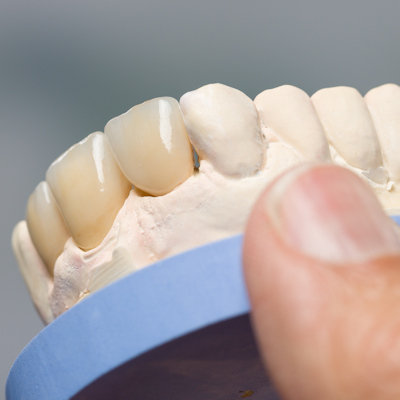 Completing a final impression during the fabrication of complete dentures can be time-consuming. Researchers compared a method using the denture's baseplate and one using custom trays and found that the baseplate method was faster and had similar clinical outcomes.
Completing a final impression during the fabrication of complete dentures can be time-consuming. Researchers compared a method using the denture's baseplate and one using custom trays and found that the baseplate method was faster and had similar clinical outcomes.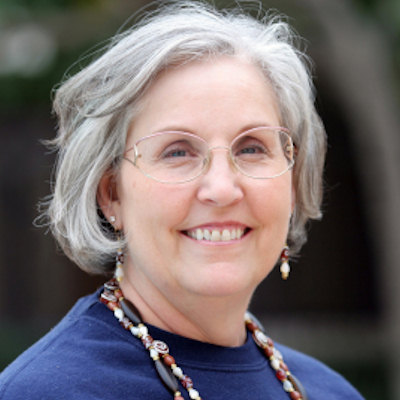 Researchers found that having private dental insurance increased preventive service use by older patients by 25%. Adding a dental benefit to Medicare could significantly increase dental service use in this population, they noted.
Researchers found that having private dental insurance increased preventive service use by older patients by 25%. Adding a dental benefit to Medicare could significantly increase dental service use in this population, they noted.
DrTony
Having more pediatric dentists is great however, there could be too many at that point as crazy as that may sound.
With less younger people getting married and having children, their pediatric patient pool is diminished.
There was a report in January 2019 showing that the US fertility rate is at 1.765 or 16% below 2.100. It is part of a 10 year downward trend and the lowest since 1978.
This is also one reason why Toy R Us went out of business- less customers, among the other reasons.
Check: https://www.minnpost.com/second-opinion/2019/01/u-s-fertility-rate-continues-to-decline-reaching-lowest-level-in-40-years/